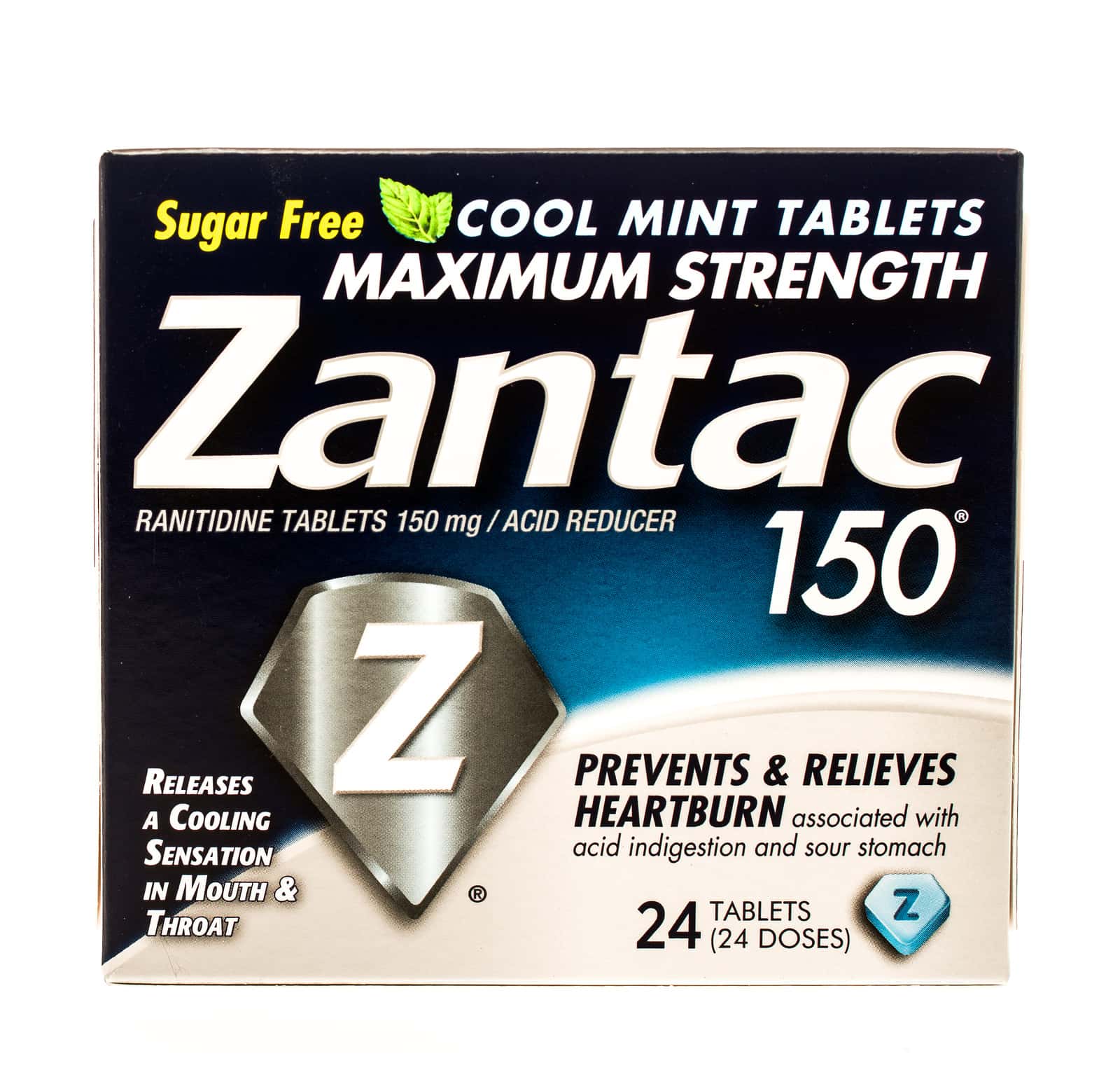
We issued a Special Health Alert on September 14, 2019, about the heartburn medicine ranitidine (Zantac). We were among the first to alert people that a nitrosamine called NDMA was found in both OTC and prescription formulations of this H2 antagonist. Read the details at this link.
Why are European drug regulators recalling Zantac and its generic equivalent, ranitidine? What’s the FDA doing?
Why Are Drug Regulators Recalling Zantac?
Valisure is a pharmacy in New Haven, Connecticut. It tests every batch of pharmaceuticals that it sells. The Valisure scientists discovered that some ranitidine samples contained more than 3,000,000 ng of NDMA per tablet. The FDA has a permissible intake of NDMA of 96 ng.
The Bloomberg reporter, Anna Edney, who broke this story now reports that (Sept. 18, 2019):
“Novartis’ Sandoz unit said Wednesday that it was halting worldwide distribution of generic versions of the stomach drug, just days after regulators in the U.S. and Europe began investigating the discovery of a likely human carcinogen called NDMA, or N-Nitrosodimethylamine, in the medication.
“Some versions of Zantac, which is also known by the generic name ranitidine, have also been recalled in Europe and Canada.
“’Current evidence suggests that NDMA may be present in ranitidine, regardless of the manufacturer,’ Canadian health officials said in a statement.”
Why Aren’t U.S. Drug Regulators Recalling Zantac (Ranitidine)?
On September 13, 2019, the FDA alerted health professionals and consumers that some batches of the heartburn medicine ranitidine contained NDMA, a probable carcinogen.
An executive of the Food and Drug Administration went on to state:
“When the agency identifies a problem, it takes appropriate action quickly to protect patients. The FDA is evaluating whether the low levels of NDMA in ranitidine pose a risk to patients. FDA will post that information when it is available.
“Although NDMA may cause harm in large amounts, the levels the FDA is finding in ranitidine from preliminary tests barely exceed amounts you might expect to find in common foods.”
Is the FDA Moving Too Slowly?
In our opinion, the FDA seems to be downplaying the danger of the nitrosamine contamination of ranitidine. In other words, FDA seems to be saying, don’t worry, we think the levels are so low as to be trivial.
That’s not what the Canadian and European drug regulators are saying. Just as with the valsartan blood pressure pills, other countries have acted quickly. To refresh your memory, the European Medicines Agency (EMA) began raising warning flags about Chinese-made valsartan on July 5, 2018. It too was contaminated with NDMA.
The next day, 22 countries began recalling certain formulations of valsartan. Health Canada started recalling contaminated valsartan on July 10, 2018.
On July 13, 2018 the FDA announced:
“a voluntary recall of several drug products containing the active ingredient valsartan, used to treat high blood pressure and heart failure.”
Over the following year there were so many recalls of contaminated irbesartan, losartan and valsartan that we lost count. We wonder whether the same situation will develop with ranitidine.
The FDA and Cancer:
The Food and Drug Administration seems somewhat ambivalent about cancer concerns. It frequently approves drugs that trigger cancer in animals. If you watch television you undoubtedly have seen commercials for drugs that carry a warning about cancers such as lymphoma. Here is an article we wrote about this topic:
FDA Stance on Drugs & Cancer Is Confusing
How to React to Drug Regulators Recalling Zantac:
At the end of this Special Health Alert article you will find some alternatives to ranitidine. You may also find the comments at the bottom of that post of interest.
What do you think? Is the FDA moving too slowly or is its cautious approach prudent? Share your perspective in the comment section below.

